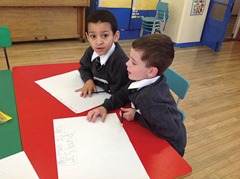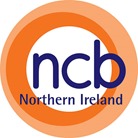Supporting schools to hear the pupil voice
 An overview of the work of the Participation Support Programme.
An overview of the work of the Participation Support Programme.
The National Children’s Bureau (NCB) is a leading research and development charity, working to improve the lives of children and young people by reducing the impact of inequalities. Working with children and for children, we seek to influence government policy; be a strong voice for young people and front-line professionals; and provide practical solutions on a range of social issues. This is achieved through working in partnership, and sharing knowledge, resources and services. We encourage and, where appropriate, facilitate the participation of children and young people in issues that affect their lives, to ensure that their voices are represented.
In 2009, NCB Northern Ireland conducted research within schools across Northern Ireland. Through our work with principals and staff, we identified gaps where training in participation, for both staff and pupils, would support successful outcomes. NCB Northern Ireland worked to bridge the gap by designing a Participation Support Programme (PSP) to help increase participation among pupils within schools and support the senior management team to consolidate skills that increase participation levels within their setting.
Participation, that is listening to and involving pupils, has been shown to help schools improve their performance across the curriculum. Recent research evidence has shown that schools that take participation seriously tend to have
• better GCSE results
• fewer exclusions
• better attendance.
Hence it is critical that we provide schools with the support needed.
During the designing of the programme NCB Northern Ireland collaborated with school principals, education and library boards, the Chair of Post Primary Principals Association and various other organisations, such as Northern Ireland Commissioner for Children and Young People (NICCY) and UNICEF’s Rights Respecting Schools, to ensure the programme met the needs of the target group.
Using the PSP framework, a bespoke training package is developed for each school. Through tailored workshops pupils involved in the programme and the senior management team work together to identify areas where participation works well.
Pupils are central to the process of designing a questionnaire for their peers to audit current participation levels and identify areas for development. Results of questionnaires provide the senior management team with evidence of current participation levels and assist in the development of action points to build upon participation levels within the school setting.
The Participation Support Programme also provides training to senior management teams to help staff explore how the school’s culture can be established to support children and young people’s active and meaningful participation. This training develops participants’ skills and knowledge in participation, involving self and organisational analysis, as well as action planning. This combined approach of working with both the pupils and the staff within schools produces better results in terms of increasing participation among the student population.
By fostering a culture of participation within the school setting, and generating awareness of the benefits of participation among both staff and pupils, schools can reap the benefits that accompany increased participation levels. This includes the practical benefits to services within the school, increased citizenship and social inclusion of pupils and also increased personal development, as pupils are encouraged to actively participate in the life of their school.
As more schools focus on how to include the voice of their pupils in the school setting, training programmes focusing on methods to increase participation levels are increasingly relevant. The Participation Support Programme aims to provide schools with an example of good practice in this area.
 NCB Northern Ireland
NCB Northern Ireland
2nd Floor, Albany House
73-75 Great Victoria Street
Belfast, BT2 7AF
web: www.ncb.org.uk/northernireland
Twitter: @ncb_ni_tweets





